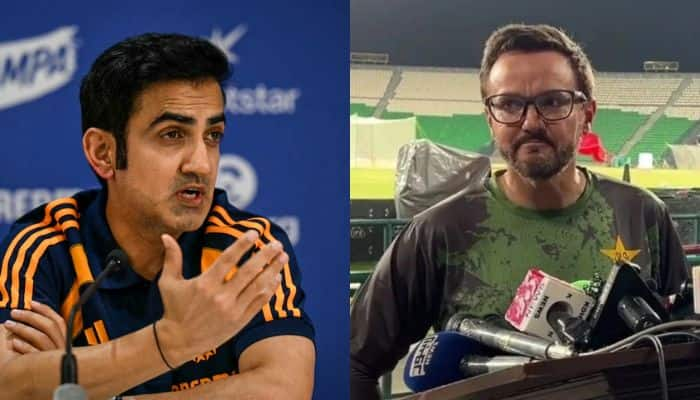In a high-voltage Asia Cup 2025 encounter, Team India stunned Pakistan not only with their seven-wicket victory but also with a noticeable post-match boycott that left cricket fans and experts talking. The usual post-match handshake between the two cricketing giants did not take place, raising eyebrows across the cricketing world. Pakistan head coach Mike Hesson broke his silence, revealing the Pakistan team’s willingness to maintain sporting decorum, despite India’s refusal to engage.
India-Pakistan Tensions Spill Onto Cricket Field
The Asia Cup 2025 clash between India and Pakistan, held amid mounting political tensions following the Pahalgam terror attack and cross-border military exchanges in April and May 2025, was more than just a cricket match. From the toss itself, Indian skipper Suryakumar Yadav and Pakistan captain Salman Ali Agha kept a noticeable distance, avoiding eye contact. This silent message foreshadowed the post-match scenario, where India refused customary handshakes, even as the Pakistan team approached the Indian dressing room.
Mike Hesson Expresses Disappointment
Speaking at the post-match press conference, Pakistan coach Mike Hesson expressed his dismay at the handshake snub, stating:
“We were ready to shake hands at the end of the game. We are disappointed that our opposition did not do that. We went over there to shake hands, but they had already gone into the changing room. It was a disappointing way for the match to finish and in a match where we were disappointed with the way we played.”
Hesson’s comments shed light on the professionalism and sportsmanship that Pakistan sought to maintain, contrasting with India’s deliberate decision to avoid post-match courtesies.
Suryakumar Yadav Leads from the Front
Suryakumar Yadav, who played a match-winning innings and struck the winning six, walked straight back to the dugout with Shivam Dube, avoiding any interaction with the opposition. While the Indian team celebrated among themselves, no handshakes or exchanges were extended to Pakistan players.
At the post-match presentation, Yadav paused to pay tribute to the victims of the Pahalgam terror attack, which claimed 26 civilian lives in Jammu and Kashmir. He stated:
“Perfect occasion, taking the time out, we stand by the victims and their families. We also want to dedicate the win to all our armed forces, who continue to inspire us.”
This gesture, though politically and emotionally significant, further highlighted the tension between the two cricketing nations.
Post-Match Fallout: Pakistan Skipper Skips Presentation
Following India’s refusal to shake hands, Salman Ali Agha chose not to attend the post-match presentation ceremony, reflecting the strain in relations. The lack of post-match camaraderie has sparked debates among cricket analysts, fans, and sports journalists about the impact of geopolitics on cricketing etiquette.
India’s Winning Momentum
On the field, however, India’s performance was dominant. With their second consecutive win in Asia Cup 2025, Team India has solidified their position in the tournament. Fans are eagerly anticipating a potential rematch in the Super Four stage, should both teams qualify. Analysts suggest that while the political tension influenced off-field behavior, India’s on-field strategy and batting depth under Suryakumar Yadav remain key factors for their continued success.
What This Means for Asia Cup 2025
The India vs Pakistan Asia Cup rivalry has always been one of cricket’s most intense matchups, and the 2025 edition has added another layer of narrative. The handshake controversy, coupled with stellar performances from Indian batsmen and disciplined bowling, has made this match a talking point not just for cricketing strategy but also for the intersection of sportsmanship and geopolitics.

